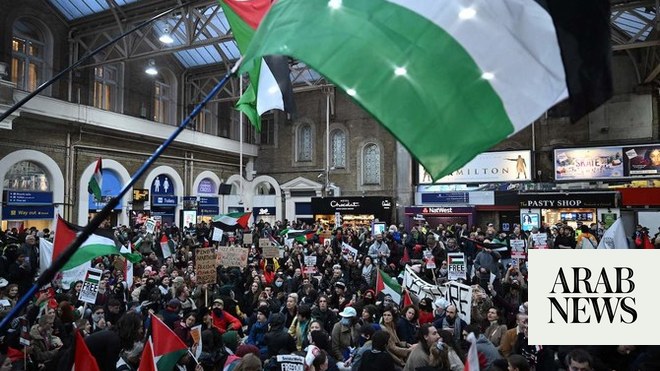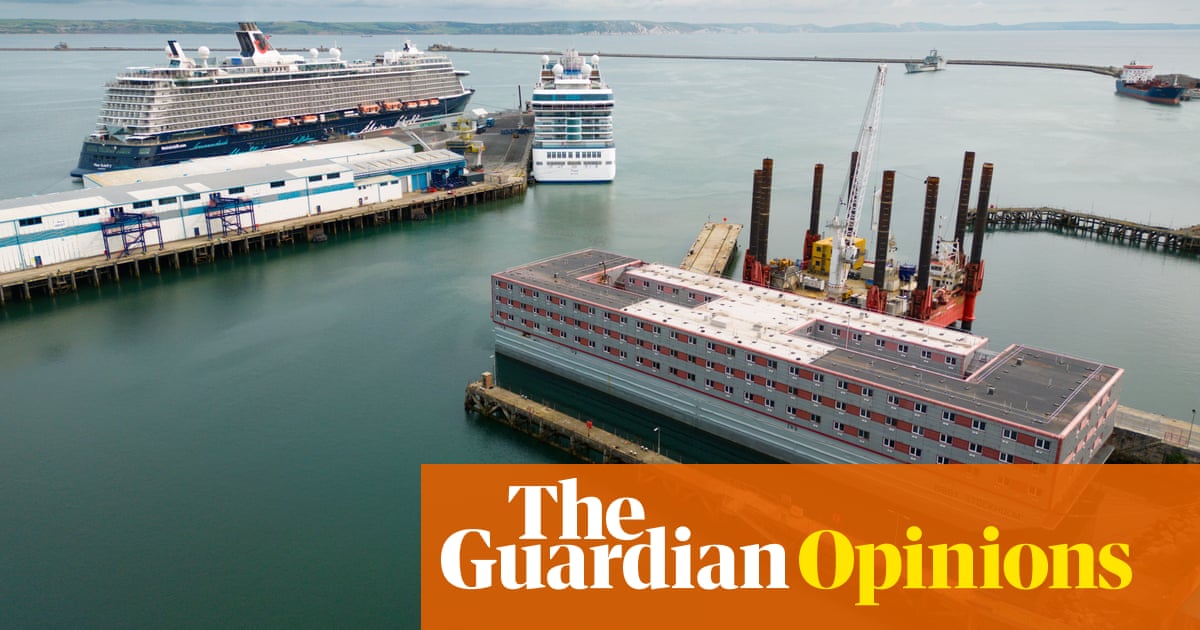
Hayley Bailey and her nephew, Scott Silcox, hadn’t been out for a restaurant meal together for more than a year – so they weren’t holding back.
“We’re going for it,” said Bailey, as the pair ordered an eclectic selection of dishes ranging from curried goat to teriyaki pork at Za Za Bazaar in Bristol, which bills itself as the UK’s largest restaurant.
Bailey, 53, is suffering from the effects of long Covid, while Silcox, 28, has been self-isolating. Bailey admitted she was a little worried about the variant first identified in India. “But I think in the end you’ve got to get on with things. We’ve been locked down for so long. People are ready to come out again.”
Brother and sister Roger, 50, and Maxine, 56, agreed. “The country has got to start opening up again,” said Maxine. “People have been patient, but it’s time to get out and about.”
Roger said he felt mistakes had been made by the government: “I think there’ll be another lockdown.” But, in the meantime, he was prepared to risk a trip out. “The virus will mutate and keep mutating. We have to get out while we can.”
In normal times, Za Za Bazaar can serve up to 1,000 diners at a time. For the first sitting on Monday, only about a quarter of the cavernous first-floor dining area, which overlooks Bristol harbour, was being used.
Big changes have had to be made. In normal times, diners are allowed to help themselves at buffet counters. For now it is table service only, though customers still have a choice of more than 70 dishes.
There was a one-way system to negotiate, as well as rules about mask wearing, and the maximum booking per party was for groups of six people or from two households only.
Customers were asked to arrive promptly, but no earlier than five minutes before time slots to avoid queuing. “Our success is dependent on everyone playing their part,” the restaurant said.
But the families, young couple on dates and work parties were enjoying themselves. “It’s lovely to be sitting down in the warm and dry,” said Josh, a student, as a heavy rain shower hit the harbourside.
Almost 200 miles north, Stephen Kirkbride, the owner of the Lakeside Inn in Southport, Merseyside, was not sure about the wisdom of serving customers inside.
His pub, a former boathouse, which he runs with his wife, Sue, is one of the UK’s smallest hostelries (at one point holding the Guinness world record for being the tiniest in Britain). It only holds 15 drinkers at a time.
“I think they should have left us outside until 21 June,” he said. “Outside service for us, although iffy with weather, has worked OK. As we’re getting deeper into the summer, we could have gotten another five weeks out of [outdoor dining], keeping safety in mind. But no, they’ve brought us all inside.”
Lesley Eames, a retired local, said it was just as cold inside as out because the doors were being kept open to help ventilation. “But in principle, it’s great [to be able to sit indoors]. It’s nice to be back to normal.”
Eames, who received her second vaccination in early April, was not worried about the Indian variant, and feels that 21 June, the next step on the government’s roadmap, “can’t come fast enough”. She said: “I don’t care, I’m not going to get it. I’ve had both my jabs. I’m not the slightest bit worried about it.”
David Patterson, who works for Manchester city council and had travelled to Southport for a day out, said it was “brilliant” that indoor seating had returned.
“Although there is the Indian variant, there are so many different variants out there, and it seems to be mutating pretty regularly,” he said. “We’re just going to have to accept it.”
Paul Davis, also retired, said relaunching indoor seating was “quite a big event”. “Now that pubs have opened inside, hopefully it’s an end to this plague and it’s back to normality,” he said.
Davis did not feel anxious about the Indian variant or the risks of sitting indoors. “We still have to be socially distanced inside, and I think pubs, and this one in particular, have been very careful and responsible on how they’ve handled the situation.”












